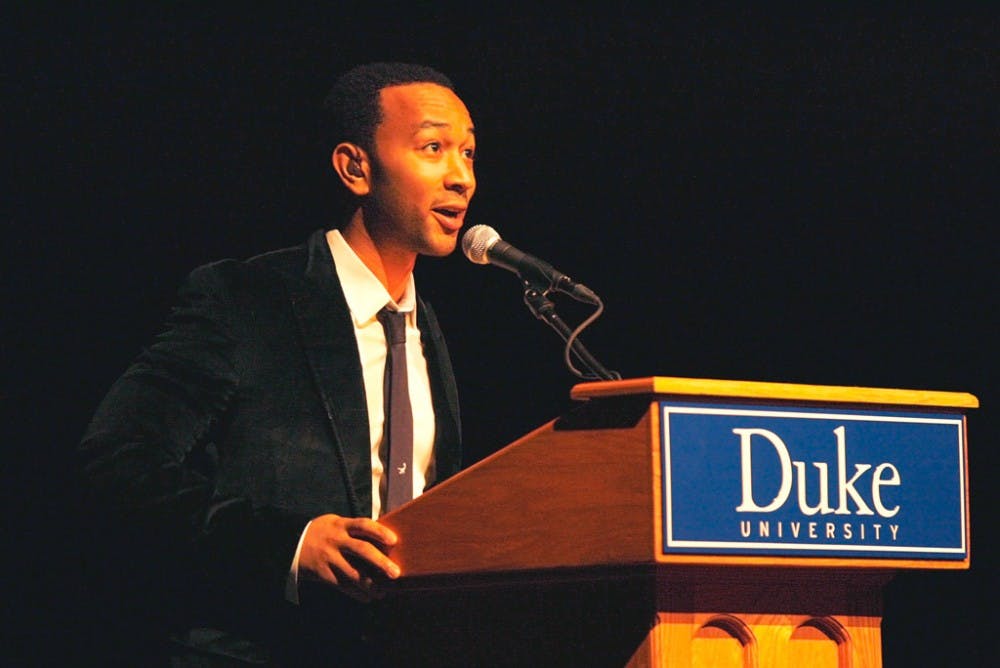Negotiations between Black Student Alliance and administrators are making progress following the delivery of the Black Culture Initiative.
The initiative is a list of recommendations that addresses problems facing the black community at Duke. BSA issued the list to administrators in January, and its members have since held consistent discussions with upper-level administrators. As a result, BSA has secured $13,000 from the Office of the Provost to fund the various groups that would like to participate in Black Student Alliance Invitational, the admission weekend for prospective black students, said BSA President Nana Asante, a senior.
This contribution will complement funds BSAI already receives annually—including $2,000 from the Mary Lou Williams Center for Black Culture and $5,000 from the admissions office, Asante said.
The University has promised to maintain this total $20,000 pledge in years to come. This year’s BSAI will begin Thursday.
A secure and increased investment in BSAI—one of the action items requested in the Black Culture Initiative—will help recruit a number of black students from an extremely competitive applicant pool, said BSAI Chair Charles West, a junior. In years past, BSA would solicit funding through the programming fund of the Student Organization Finance Committee.
He noted that this allocation for BSAI is a significant increase from the amount of money that previously funded the weekend.
“By providing this money, the University has shown that it is on the right trajectory to achieving greater diversity and enriching the at-large community,” West wrote in an email Tuesday.
BSAI began in the 1980s as the University’s effort to recruit top black applicants, according to BSA’s website. These prospective students are hosted by current undergraduates and are encouraged to participate in various activities designed to help them become familiar with the black student culture and the larger Duke community.
The invitational weekend has been a source of controversy in recent years, as some have argued that the weekend may misrepresent life at the University or promote self-segregation.
President Richard Brodhead has previously said that he prefers a racially unified welcome for all admitted students. Brodhead was instrumental in eliminating minority-targeted recruitment events at Yale University, where he served as dean of Yale College for 11 years.
Brodhead is currently traveling and could not be reached for comment.
BSA has been discussing the Black Culture Initiative with Dean of Arts and Sciences Laurie Patton; Steve Nowicki, dean and vice provost for undergraduate education; and Lee Baker, dean of academic affairs for Trinity College of Arts and Sciences and associate vice provost for undergraduate education, Asante said.
The other recommendations include the placement of the Mary Lou Williams Center in the new West Union Building, the establishment of an endowment for culturally significant events and academic enrichment efforts and a statement from the University on special considerations for minorities in the admissions process.
Baker declined to comment on the new funding provided for BSAI or the conversations with BSA, stating that discussions are still taking place. Patton and Nowicki could not be reached for comment.
BSA awaits the composition and release of an official response to the Black Culture Initiative from the administration, Asante noted.
“We are waiting [and] working on a... University response addressing the racial climate at Duke and the issues that black students are facing,” Asante said. “[We await] not only the University’s acknowledgement of the issue, but the steps and initiative the University is taking to address these issues.”
Asante added that BSA is brainstorming a way to gauge the everyday challenges faced by black students and other minorities on campus. Although the logistics of such an assessment are currently unclear, Asante said ideas include implementing some combination of statistical data, focus groups and presentations.
“The work we’ve been doing and the dialogue we’ve been engaging in shows that we are dedicated to doing anything and everything necessary toward bringing forward these concerns to the University and addressing them accordingly,” she said.
Get The Chronicle straight to your inbox
Signup for our weekly newsletter. Cancel at any time.

